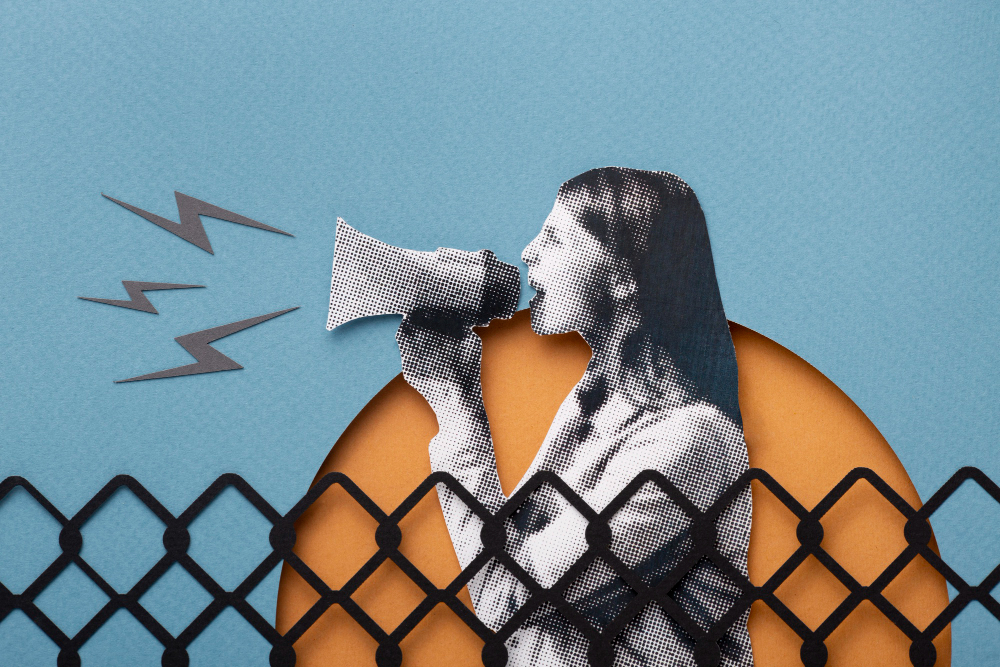This post is part of the Collective Punishment Basics series—a foundational guide for understanding how systemic exclusion shows up in schools and why it causes deep harm to disabled, neurodivergent, and vulnerable children. If you’re just starting to name what feels wrong, this is a place to begin.
Collective punishment in schools often silences individual experiences. Yet, platforms like Reddit provide a space where students share their stories candidly. Below are excerpts from various Reddit threads that illuminate the real-world effects of collective punishment.
All boys lost recess
This account from a student highlights the frustration of being penalised for actions one did not commit, leading to feelings of injustice and resentment”
“All boys lost recess for a month because someone was writing graffiti in the boys bathroom (turned out to be a High School student [we were K-12]). That means that 0% of the guilty were affected and 100% of the punished were innocent.” r/PetPeeves
We weren’t allowed to play a game
This parent shares how collective punishment fosters resentment between students, especially toward those with additional needs:
“My daughter is starting to really not like ‘Jenna’ and ‘Tim’ because of this. She comes home and rants about how they ruin everything for everyone and how it’s not fair.” r/kindergarten
Mandatory sexual harassment training—for nothing I did
A student describes the confusion and shame of being disciplined for something another student did:
“I had to go to a sexual harassment training with a counselor because some kid I’d never met decided to get himself kicked out of school. The entire training, they made me feel like I had done the thing.”
r/PetPeeves
Teacher weaponises peer pressure
This parent reflects on the way a teacher encouraged the class to isolate a neurodivergent peer through collective punishment:
“The teacher has made it explicit that he is punishing the whole class because of R.’s behaviour. This is clearly an attempt by this teacher to get the class to exact social retribution on this kid.”
r/daddit
I don’t want to punish the kids who don’t destroy my room
A teacher articulates the moral tension many educators feel—wanting control but knowing the cost of unjust strategies:
“I know that collective punishment is not a great solution. I don’t want to do this to the kids who don’t destroy my room.” r/Teachers
It teaches that doing the right thing doesn’t matter
This teacher reflects on how collective punishment punishes integrity and destroys motivation:
“The ones doing the right thing learn that it doesn’t do them any good. They get punished anyway, so why bother?”r/Teachers
It made me hate school
A former student explains the long-term effects of being punished for others’ behaviour:
“Group punishment doesn’t fix behaviour—it just makes kids hate school. It’s a lazy way for the administration to avoid the work of conducting a simple investigation.” r/PetPeeves
These narratives collectively underscore the detrimental effects of collective punishment on students’ emotional well-being and the school environment. They advocate for more individualised and just approaches to discipline that recognize and respect each student’s unique circumstances.
Injustice is immediate and unforgettable
These accounts reveal a visceral understanding of injustice. Students and parents alike recall the precise details of punishments that were not theirs to bear. What stands out is not the event itself, but the moral wound—the dawning realisation that authority may act arbitrarily, and that innocence offers no protection. This kind of harm leaves a residue: bitterness, distrust, and sometimes lifelong resentment toward institutions that were meant to protect.
Erosion of moral reasoning and motivation
Collective punishment undermines the foundational logic that good behaviour will be rewarded and wrongdoing will be held accountable. Instead, it teaches a more cynical lesson: that individual effort or integrity has no bearing on outcomes in a group context. Several teachers on Reddit explicitly admit that collective punishment punishes “the good kids,” teaching them that striving to meet expectations no value. This corrodes internal motivation and fosters disengagement.
Scapegoating and ableism
Many of the stories mention the same dynamic: a classroom punished for the behaviour of one child, often named and blamed openly. In these moments, educators relinquish their responsibility and invite peers to socially discipline the child through resentment, exclusion, or pressure. The emotional burden is transferred from adult to child, often targeting those with support needs. This invites ableist thinking and creates unsafe peer environments for neurodivergent students.
-
Why are neurodivergent students more likely to be harmed by collective punishment?
Neurodivergent students—especially those who are autistic or have ADHD—often experience the world with heightened sensitivity. They may communicate overwhelm, fear,…
Adult burnout and desperation
The educators who admit to using collective punishment do so with ambivalence or even guilt. Their confessions are telling: they know it doesn’t work, but they lack support, tools, or time to respond differently. These posts point to a systemic failure—where burnout and under-resourced classrooms produce discipline practices that everyone recognises as unjust. The problem isn’t bad teachers. It’s bad policy and neglected supports.
-
Balancing budgets by denying disabled kids support
In British Columbia, we are told that the education system is improving. Budgets are rising. Inclusion is a stated priority.…
Damage to trust
For many students, collective punishment is not simply unfair—it is disillusioning. Several posters recount how their experience made them “hate school” or view adults as lazy, biased, or hostile. In a system already strained by equity gaps and mental health crises, this loss of trust is costly. Students learn not to report problems, not to ask for help, and not to expect justice from the people meant to guide them. The emotional withdrawal is both silent and enduring.
Conclusions
These testimonies, brief though they are, speak volumes. They strip collective punishment of its pedagogical pretence and reveal it as what it truly is: a failure of care, a failure of imagination, and a failure of justice. What students and parents remember is not the lesson but the betrayal—the moment they learned that innocence would not shield them, and that adults would rather punish a group than confront a cause. These are not isolated anecdotes. They are a pattern. And the pattern indicts not individual teachers, but a system that normalises harm in the name of control.
To end collective punishment in schools is not merely to reform a disciplinary tactic—it is to restore the conditions of trust, safety, and moral coherence that learning requires. That work begins with listening. And when the voices of students rise—in anger, in confusion, in weary resignation—we must not turn away. Their stories are evidence. Their pain is the cost of inaction.









